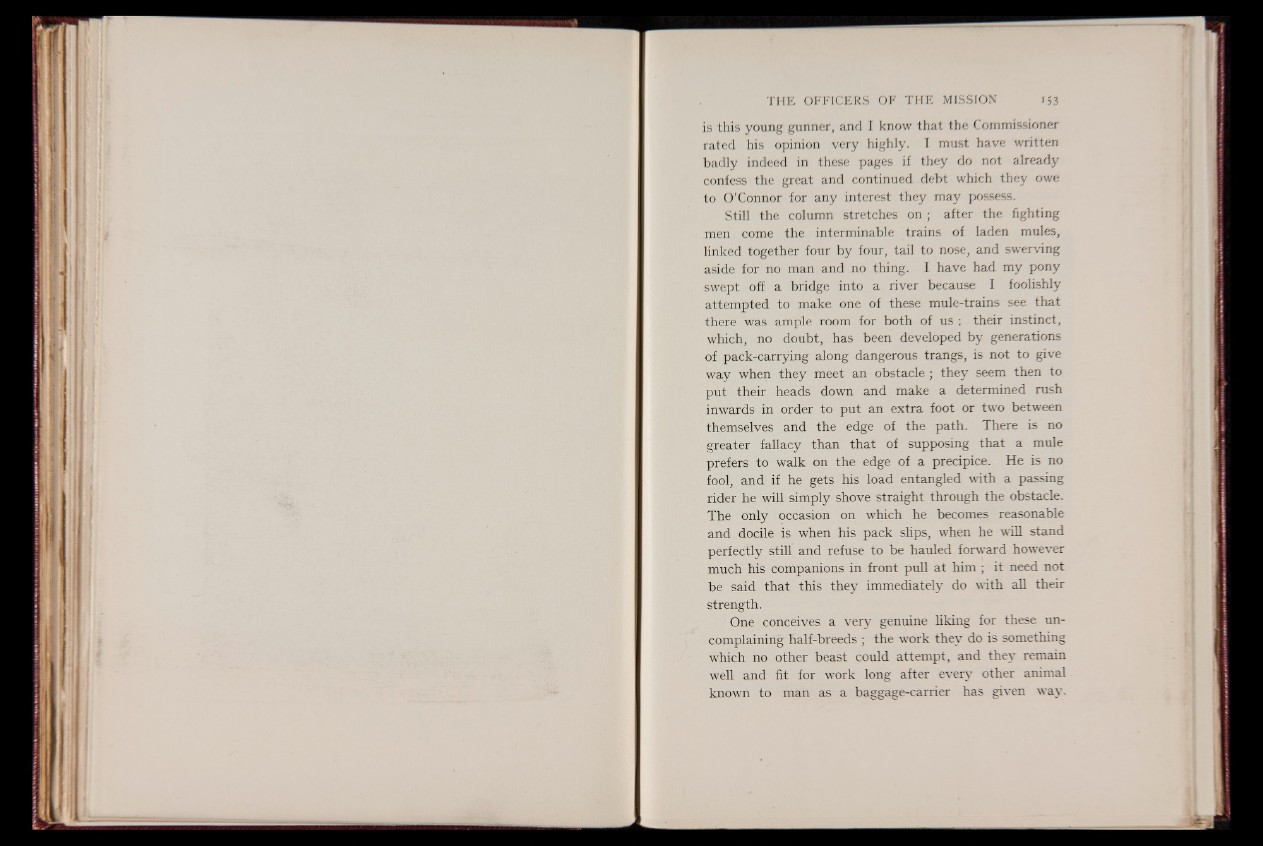
is this young gunner, and I know that the Commissioner
rated his opinion very highly. I must have written
badly indeed in these pages if they do not already
confess the great and continued debt which they owe
to O’Connor for any interest they may possess.
Still the column stretches o n ; after the fighting
men come the interminable trains of laden mules,
linked together four by four, tail to nose, and swerving
aside for no man and no thing. I have had my pony
swept off a bridge into a river because I foolishly
attempted to make one of these mule-trains see that
there was ample room for both of us ; their instinct,
which, no doubt, has been developed by generations
of pack-carrying along dangerous trangs, is not to give
way when they meet an obstacle ; they seem then to
put their heads down and make a determined rush
inwards in order to put an extra foot or two between
themselves and the edge of the path. There is no
greater fallacy than that of supposing that a mule
prefers to walk on the edge of a precipice. He is no
fool, and if he gets his load entangled with a passing
rider he will simply shove straight through the obstacle.
The only occasion on which he becomes reasonable
and docile is when his pack slips, when he will stand
perfectly still and refuse to be hauled forward however
much his companions in front pull at him ; it need not
be said that this they immediately do with all their
strength.
One conceives a very genuine liking for these uncomplaining
half-breeds ; the work they do is something
which no other beast could attempt, and they remain
well and fit for work long after every other animal
known to man as a baggage-carrier has given way.